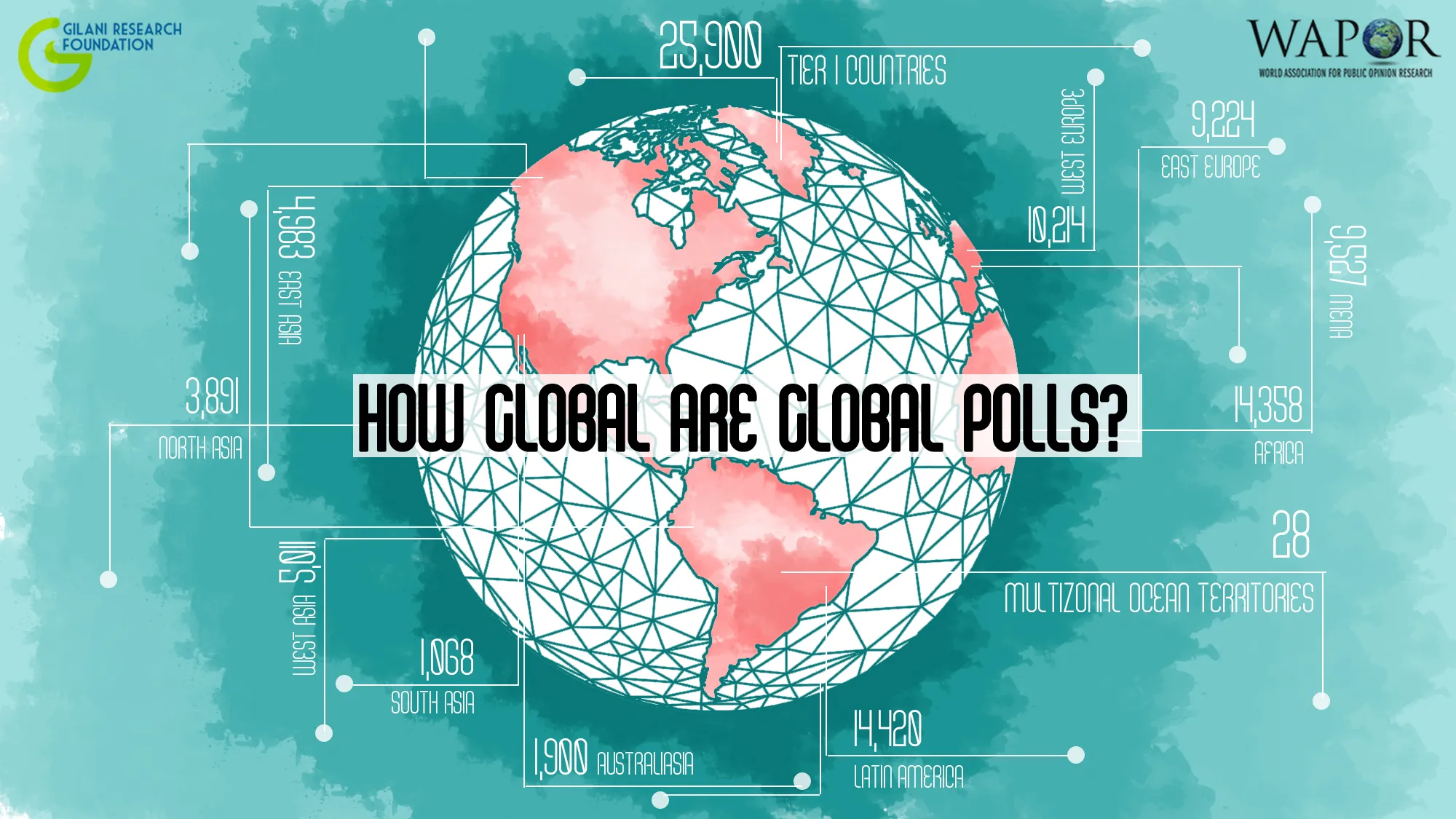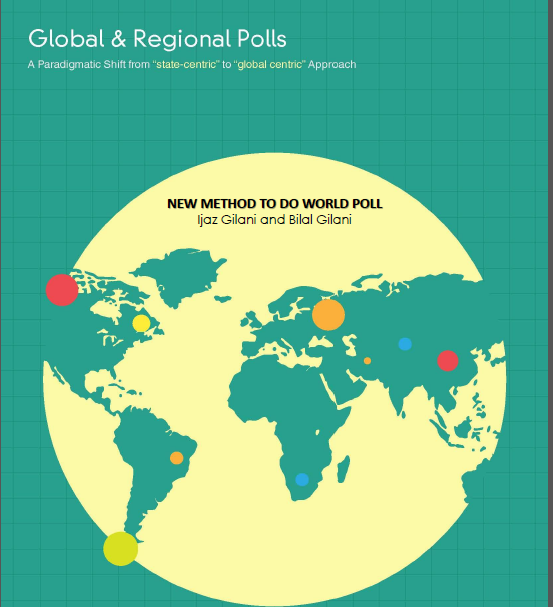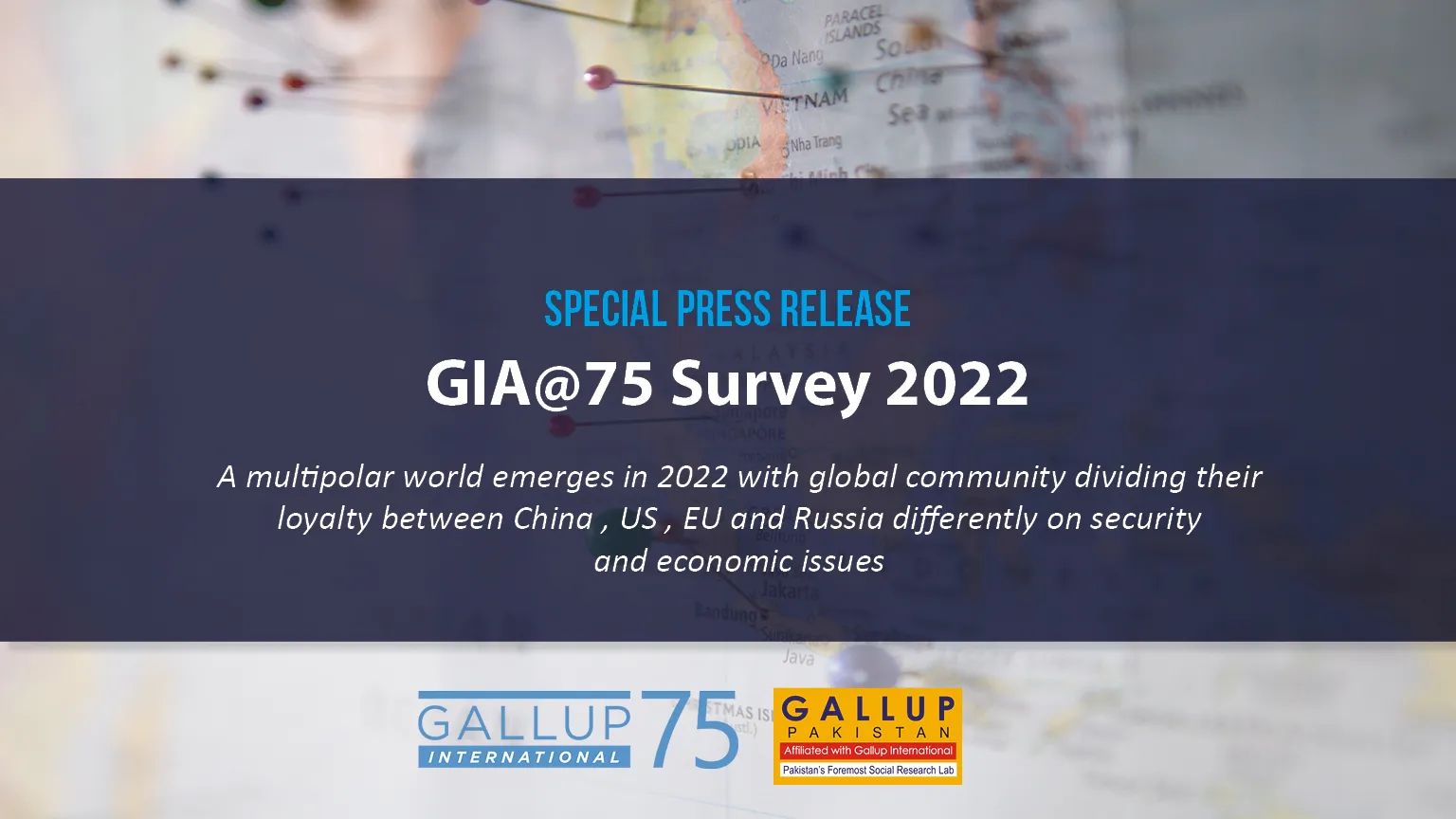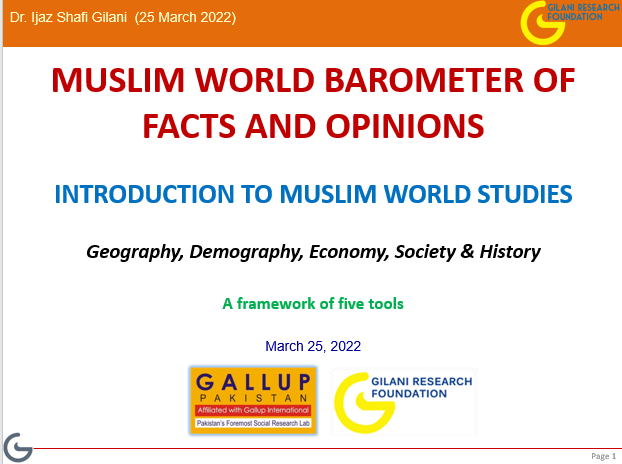Projects
Gilani Research
Foundation Projects
How Global are Global Polls? ( Dr. Ijaz Shafi Gilani- WAPOR 2017)
Presentation by Dr. Ijaz Shafi Gilani, at WAPOR Annual Congress 2017 (Lisbon, Portugal). PDF can be downloaded from button below this post. Panel Time: 11.50 am – 1 pm on Sunday, the 16th of July More Details on the panel and the entire program available at: https://www.confmanager.uk/programme2017.php


New Method To Do World Poll – Dr. Ijaz Gilani & Bilal Gilani
Dr. Ijaz Gilani and Bilal Gilani present an unconventional method to do World Poll. They argue that their Method adopts a ‘global-centric’ approach instead of the conventional ‘state-centric approach’ to choose a sample of the world. The paper presents a list of 1000 Sampling Blocks from across the world. These Blocks were chosen randomly (PPS) by the authors from a larger list of 350,000 sampling blocks, which constitute their Global Census data. The authors have developed a Global Sampling Software which generates different types of samples to do global or world polls and regional polls. They argue that a global sample of 20,000 men and women can provide a truly representative poll of the world which can be replicated and used for trend data and cross-sectional analysis of key regions of the world. The authors believe that their global-centric method to do world polls can produce truly representative world polls at affordable cost and rapidly, possibly within a week’s timeframe. The paper was presented at the WAPOR Annual Conference held in Boston in May 2013.
Polling Around the World- Gallup International
The book is an edition to celebrate the 70th anniversary of GIA!


Special Press Release: A multipolar world emerges in 2022 with global community dividing their loyalty between China, US, EU and Russia differently on security and economic issues (GIA @ 75 Survey 2022)
An opinion poll was conducted by GIA in 64 countries covering over two thirds of the global population (and more than 90% of those countries which are free to conduct and publish opinion research). This press release sheds light on the findings of the survey regarding perceptions on strategic partnerships between countries.
The two questions that this press release covers are:
- Which of the following would you prefer your country to partner with economically – the US, China, Russia, or The EU?
- Which of the following would you prefer your country to partner with security – the US, China, Russia, or The EU?
These interesting findings have emerged out of an annual, 64 country research conducted by Gallup International (founded by the world-renowned scholar and pollster Dr. George Gallup in 1947). The survey in Pakistan was done by Gallup Pakistan, Pakistan’s oldest and trusted survey firm, working since 1979.
80% of Muslims are concentrated in 57 countries who are members of OIC (Organization of Islamic Countries) whereas 20% live in the remaining 118 countries – Muslim World Barometer Of Facts And Opinions
(Islamabad), March 25, 2022
To access the full report, click here
Key Findings
- According to census data compilation from World Bank development indicators, 2020, there are almost 2 billion Muslims in the world
- The OIC-57 Muslim World
- Most but not all of 57 members of OIC are Muslim Majority countries. The proportion of Muslims in these countries ranges between 99% (Turkey) and 12% (Uganda)
- However, 92% of the OIC-57 population reside in countries where Muslims are more than 50% of the local population.
- The OIC-57 span all continents, Asia, Europe, Africa, and America
- OIC-57 has an interesting mix of Muslim societies living in a blend with societies of other civilizations of the world.
- Muslim World Outside The OIC-57
- They comprise 20% of the Muslims worldwide.
- Muslim majority are approximately 400 million.
- There are 107 countries excluding OIC states where the Muslim community is more than one million.
- The total population of the OIC-57 urban world is 642.62 million.
- A Civilizational Perspective on International Relations
- The United Nations system instituted in 1944 is based on the nation-states which is a useful way of interacting in world affairs.
- In theory, all of its 175+ members (200+ including what are sometimes referred to as micro-states owing to very small population) are ‘sovereign’ and equal which is a helpful concept to build a ‘society of states.’
- As an institution of the age of modernity the United Nations is a ‘constructed’ entity and ‘an administrative’ spirit when it comes to deeper and historically rooted affinities, we find that the world population turns to other forms of groupings.
- The monopoly of either ‘state’ or ‘civilization’ over any ‘identity’ and ‘rule in public affairs’ is a source of undesirable tension rather than harmony
- The definitional problem of civilizations arises from their very nature. Civilizations are not an administrative unit comparable to states. They are not a structure with precise organizational rules and leadership nor are their dividing lines and continuity and discontinuity of the same nature as in states
- During the last century we can trace four seminal writings on the subject of civilizations – Arnold Toynbee (a study of civilizations), Osward Spengler (decline of the west), Braudel (civilization and capitalism), and Samuel Huntington (clash of civilizations).
- All four have identified the following four as the largest contemporary civilizations – Christian, Islamic, Hindu, Sinic – in terms of the number of their adherents these four comprise the vast majority of the contemporary world population.
- During the early decades of the 21st century, we should include a fifth large civilization which would best be described as the no religion (a-religious) civilization our larger study, the one going beyond the Muslim world, takes up these issues in greater detail.

